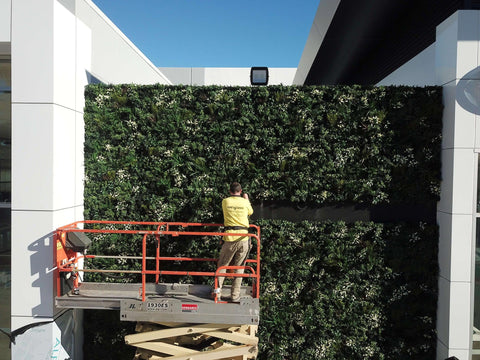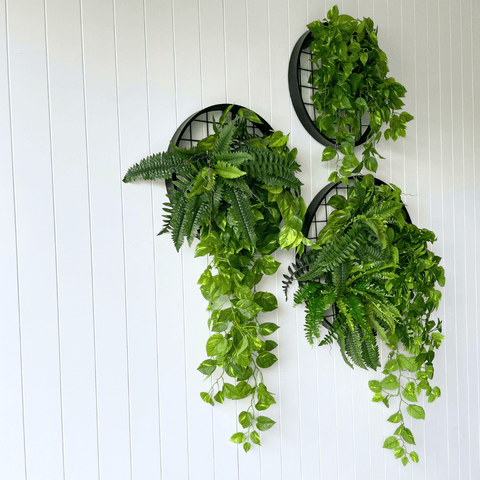T
he new year has inevitably drawn our attention to emerging and rapidly increasing design trends when it comes to the modern workplace. We’ve compiled a list of what products, colours and materials are decking your office halls this year. Read on to uncover the cutting-edge course that office design is taking in 2020.
Privacy In Collaborative Environments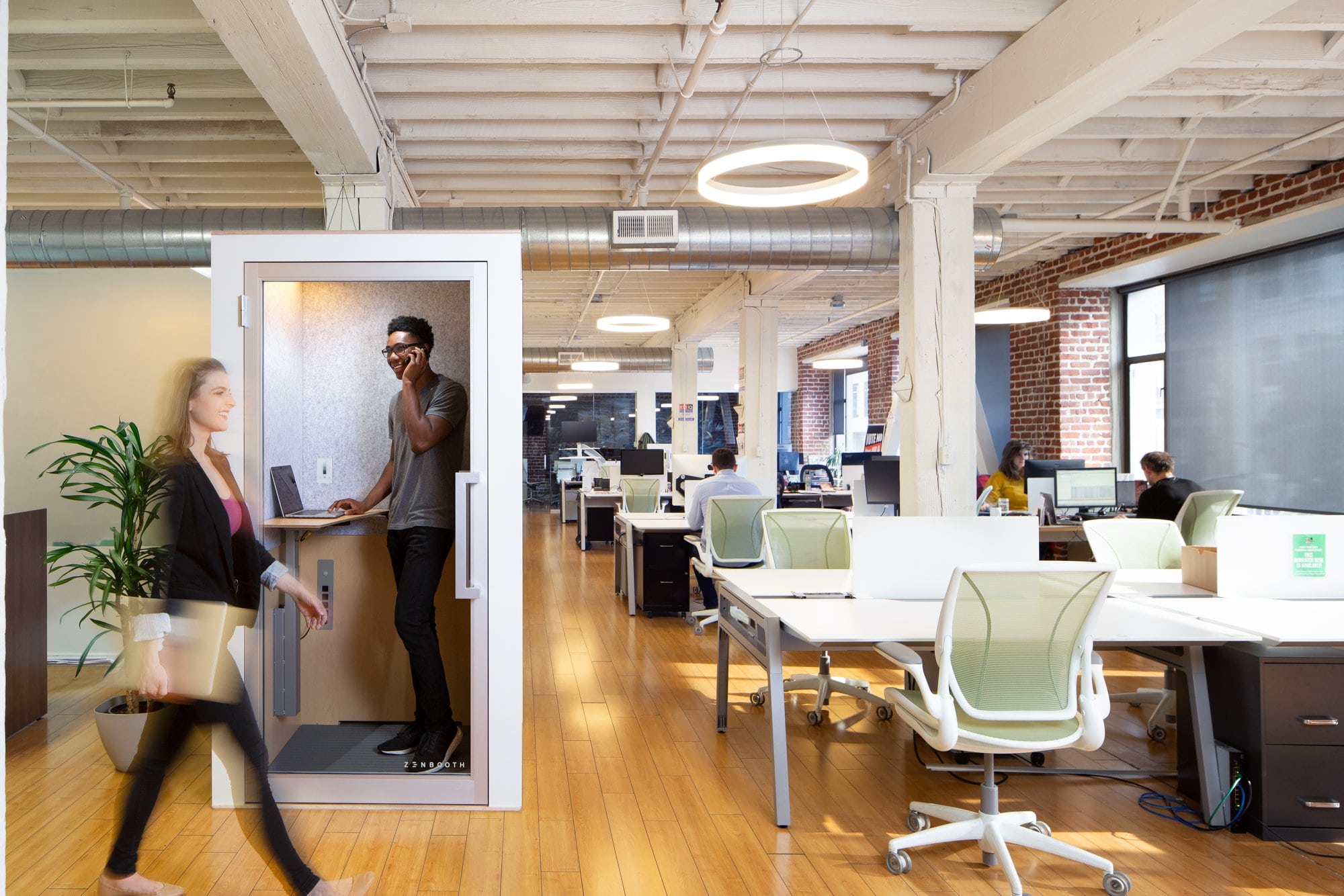
We’ve seen a huge shift in office layout moving far, far away from the 19th century cubicle offices that once secluded workers from one another and drove a wedge in creative collaboration. But unfortunately, it could have come at an expense to privacy – which is extremely important for employees to access when optimum concentration is needed. A clever solution to this detriment has emerged in the utilization of phone booths manufactured by innovative companies like Zenbooth and office pods, which are sound proofed, powered and just big enough for one person to work alone and out of earshot of colleagues. They’re designed to uphold the important collaborative environment while providing the option to work in privacy, however they’re also a pricey investment, with most pods/booths costing around $3500 and workplaces requiring numerous pods to upkeep with demand. This is yet another example of workplaces incorporating a range of different landscapes in the same office, aimed at suitability for different types of work. Collaboration is still incredibly important and designers know that they can’t forgo one office eco-system for another and so are finding ways to offer every beneficial type of working environment to optimize comfort and quality of work.
Natural Colour Palettes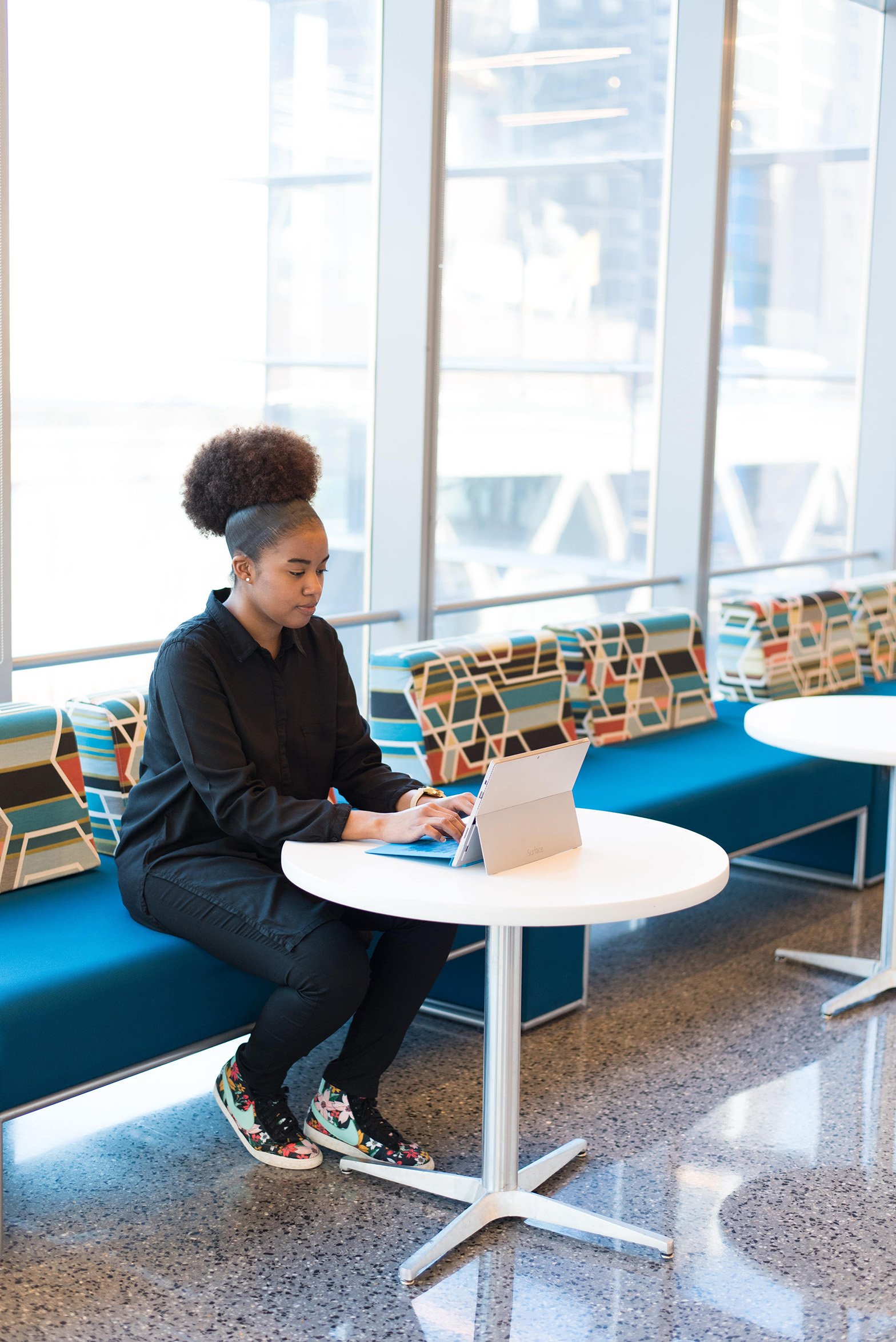
Dulux has forecasted four palettes that will consume interior design in 2020 and they all predictably nod to nature while throwing back to iconic eras.
The Cultivate palette includes calming colours of green and grey and textures that are found everywhere in nature – tinted glasses, transparent materials and resins. Green has been long regarded in workplaces because of its ability to calm and motivate employees, crucial in the modern movement towards healthier workplaces.
Next up is their Grounded palette which strips tones right back to their natural origins, creating the perfect blank canvas for natural materials to take centre stage while also leaving room for bold statement pieces. Stone, timber and sand are the stars of this show and the brief for this palette is simple beauty.
Continuing the natural environment theme, Dulux’s Indulge palette showcases moody reds, rich violets and tans that are evocative of corals and clay. This is the perfect palette to incorporate luxury into offices and workspaces, pairing beautifully with opulent velvet upholstery and furnishings.
The ‘Comeback’ palette is one which takes inspiration from past design eras, namely the Bauhaus movement that encouraged the combination of crafts and fine arts, originating in Germany 100 years ago. It utilizes the boldest of blues and teal that aren’t afraid to pair with striking reds in a conspicuous collaboration that is synonymous with the Australian landscape.
Sustainable Products and Materials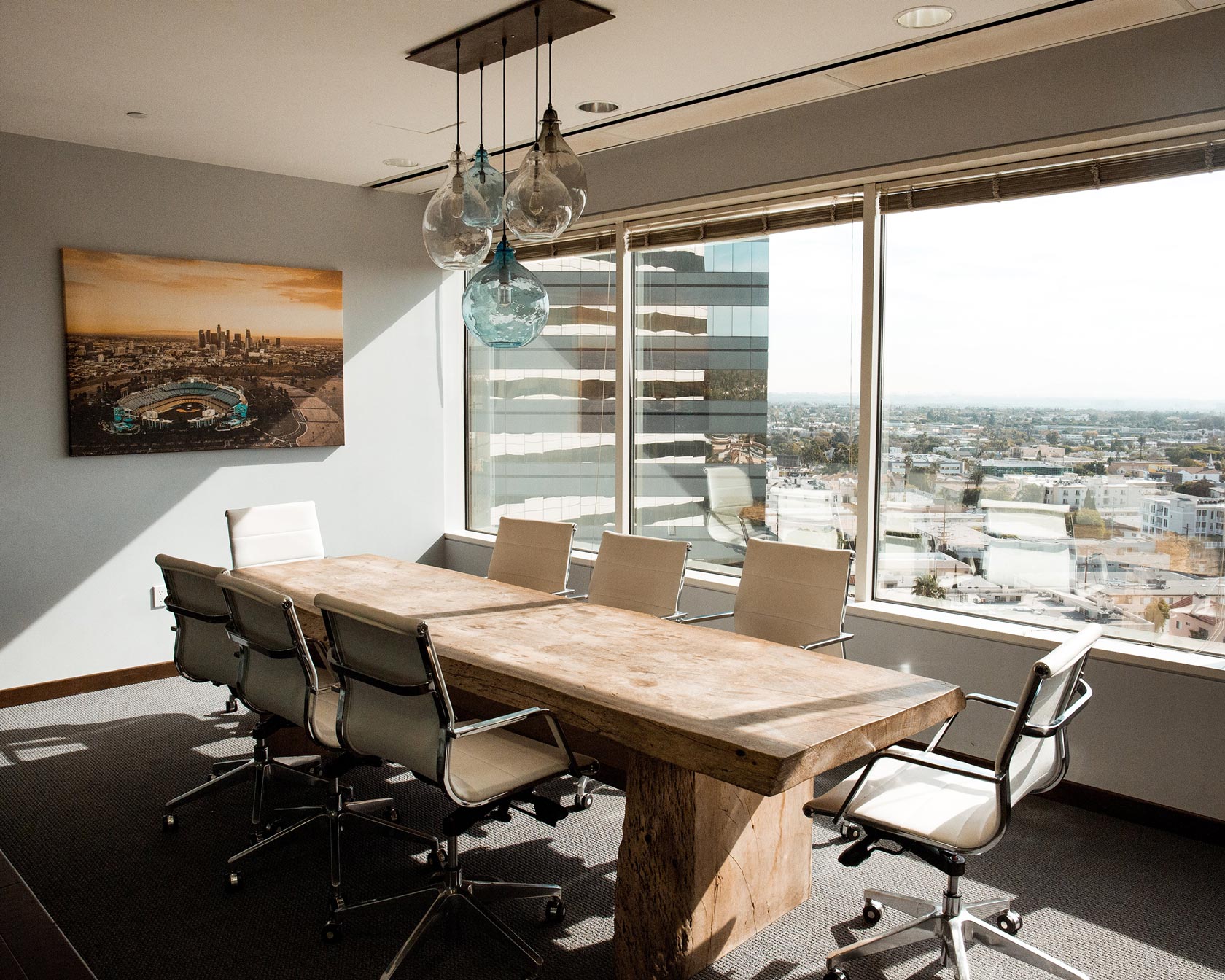
It seems almost every industry on earth is attempting to take more sustainable steps to reduce their footprint where possible and the design sector is leading the way. Leaning on our clothing counterpart, the design industry is following fashions suit, implementing use of sustainable textile materials such as bamboo, jute and organic cotton in window coverings and furniture upholstery. It’s a sustainable move that appeals to peoples moral compass and can allow employers and employees alike to feel proud of their company and its efforts to preserve rather than ruin the earth. Natural materials also adhere to biophilic design and our innate needs as humans to feel close to nature, especially as inhabitants of the built world. When it comes to curtains and carpets, natural fibers allow these pieces to tie in perfectly with exposed timbers, crisp white stone interiors and lush greenery, all elements of the minimalist trend that is characteristic of modern workplaces and still going strong. Kellie Sirna, Co-founder of Studio 11 Designs, predicts sustainability will lead the way in 2020 because it will allow companies to “embrace an ethos of environmental consciousness” and “drive awareness for the issue”, ultimately increasing public support and engaging like-minded customers.
Healthier Work Spaces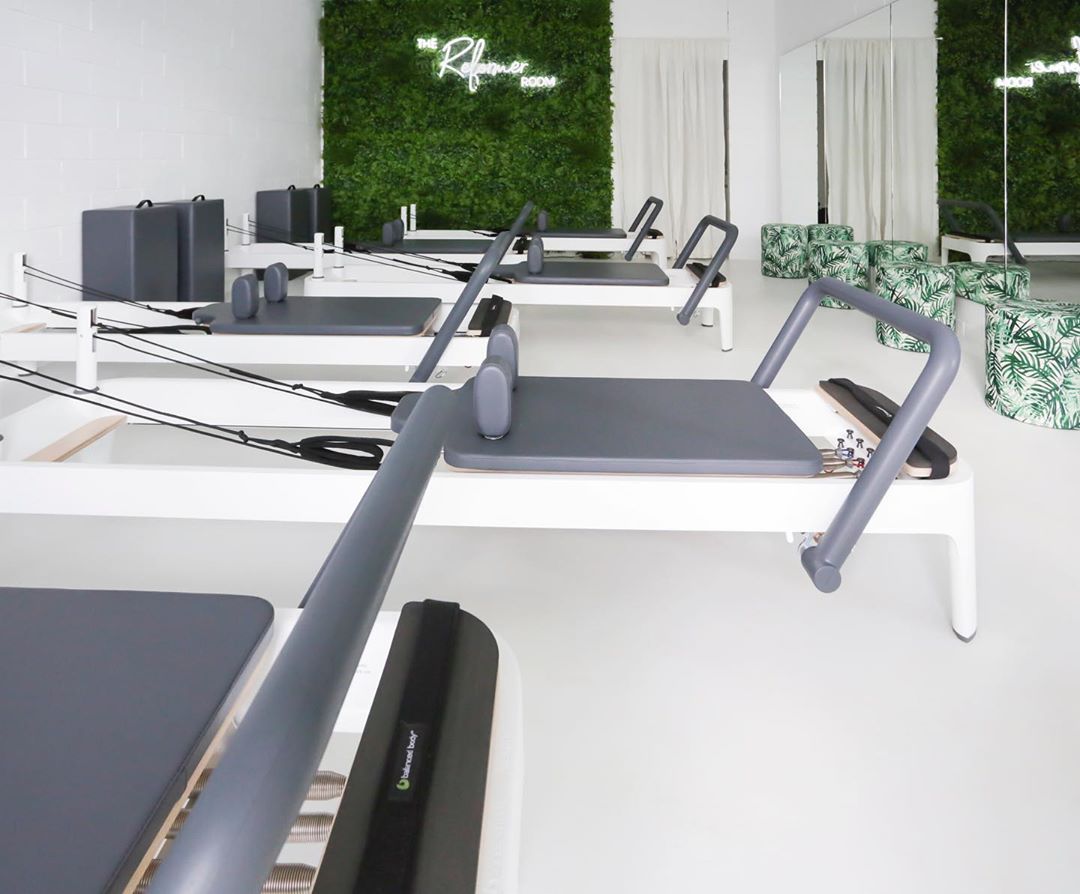
Wellness and health are possibly the largest overall trends of the 20th century as they are the absolute pinnacle of our existence and our quality of life. Once upon a time it was an accepted fact that the workplace owned 80% of our time and if that specific space wasn’t beneficial to our mental or physical wellbeing it was just a fact of life. Nowadays people aren’t afraid to demand more and employers are hyper aware that their employees productivity and value depends on a supportive environment that will foster physical and emotional wellbeing. Emergence of gyms, meditation spaces, natural light and large amounts of greenery are all ever-increasing fixtures of the modern office with huge functional benefits. Different ergonomics that support healthy movement and postures such as standing and adjustable-height desks and the inclusion of environments to suit all working needs including collaborative and private environments all nurture mental and physical wellbeing. The Society for Human Resource Management has reported that in their survey of Strategic Benefits of Wellness Initiatives, 76% of companies have some kind of wellness program. Of these companies, 30% had analysed the cost of their wellness program and 90% reported they were somewhat or very effective at cutting illness costs in the workplace. It’s been proven time and time again that investing in your people is the single most effective way to increase quality of work, and this trend is only going to continue gaining momentum in the design industry with evolving initiatives.
{{cta('a585ccf1-739f-4c81-9d6c-102963af501b')}}
Functionality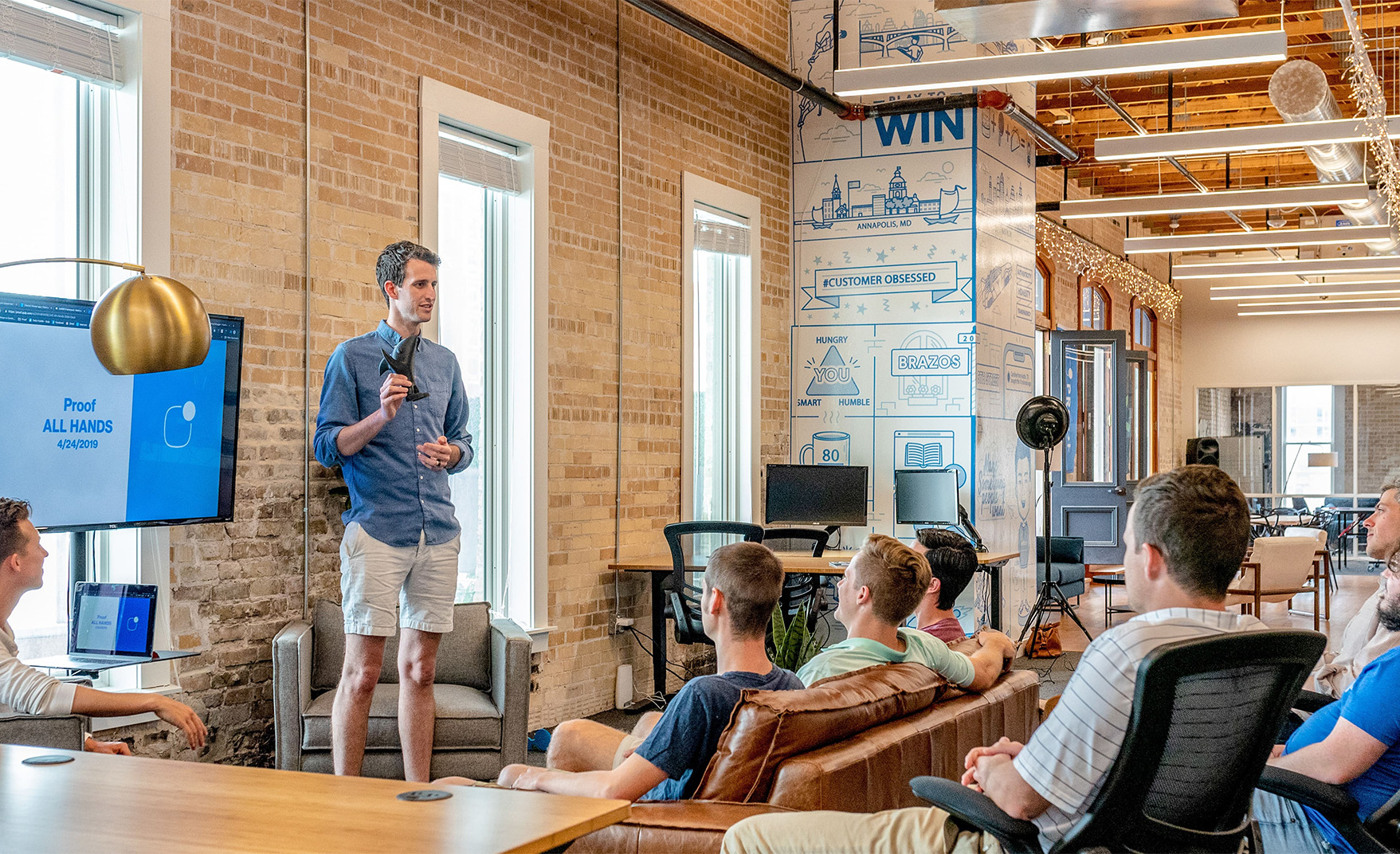
Furnishings and layout are all designed with the ultimate goal of functionality in mind. Standing desks bombarded offices in 2019, and 2020 is seeing the use of height-adjustable desks because the former just weren’t functional enough. Staircases have been upgraded in functionality, just when you thought they were solely for getting from A to B, companies are spotting them with cushions and creating amphitheater-like seating for people wanting a casual place to collaborate – similar to that of Spin Master’s Tokyo office. Technological abilities are now endless and so functionality is increasing exponentially with offices implementing artificial intelligence technology, interactive conference rooms, virtual reality experiences and huge interactive screens. These are all adding to the functionality of office spaces and allowing employees to access information faster than ever before, be progressively inspired and get mundane administration tasks completed in record times, leaving room for more creative activities.
Every tiny detail of the office is being inundated with functionality in order to make business more efficient than ever before.
Functionality however, doesn’t mean the sacrifice of comfort. To nurture feelings of connection to people’s workplaces, designers are combining functionality with homely features of comfortable furnishings that make employers feel less like they are missing out on time at home by bringing familiar and soft touches to the workplace. These spaces foster feelings of rejuvenation and allow workers to continue their day head on with more energy after utilizing these cosy, recharging spaces.
Biophilic Design
Biophilia has possibly been the most characterizing resurgence in the design industry over the past decade and for very good reason. Humans are spending more time than ever indoors and especially in office settings. For these reasons, a disconnect to nature has been experienced and its been proven detrimental to human health, triggering stress, anxiety and unhappiness. To counteract the vast amounts of time spent in buildings, designers are attempting to bring the outdoors indoors.
Natural timbers, stones, curvatures, organic lighting and views are all super effective strategies to implement biophilia into office spaces and allow employees to work in a more calming and pleasant environment. The link between mental wellbeing and physical well being is already widely regarded and so any techniques to foster mental and emotional wellbeing are valuable to employers who wish to reduce the costs of employee disengagement or illness.
And so there you have it, the forecasted design trends of 2020 as predicted by industry experts. The recurring themes are sustainability, bold colours, increased functionality, health and wellness, diverse working environments and the increasingly present biophilia. It seems workplaces are transforming in favour of wellbeing, the earth and productivity – some of our greatest values.



